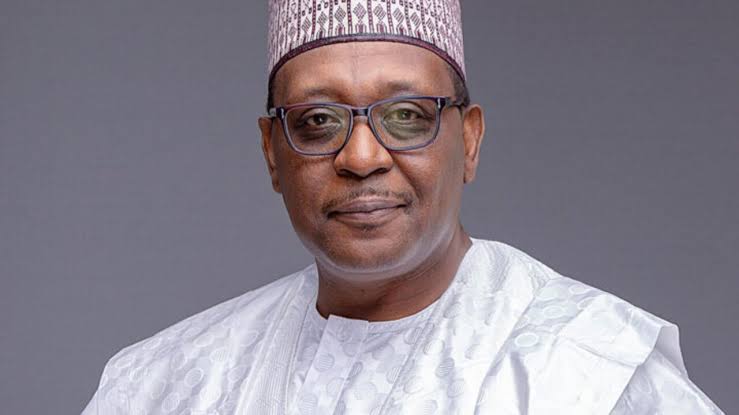News
Posers as Nigeria increases medical students’ enrollment in moves to curb ‘Japa’ trend

Nigeria’s healthcare system is grappling with a significant challenge – a wave of emigration known as ‘Japa’, where medical professionals leave the country for better opportunities abroad.
To address this critical shortage, the Federal Government (FG) announced a bold move: doubling the enrolment quota for medical and nursing schools, from 28,000 to 64,000 students annually.
Coordinating Minister of Health and Social Welfare, Prof Muhammad Pate, said this at the sectoral ministerial press briefing to mark the first anniversary of President Bola Tinubu in office in Abuja.
Over the years, health workers in the country have always moved to other countries to practice, but experts say the recent increase in emigration is worrisome.
Data from the Medical and Dental Consultants’ Association of Nigeria showed that about 1,056 consultants left the country to seek greener pastures between 2019 and 2023.
The Nigerian Association of Resident Doctors also revealed over 900 of its members left for Europe between January and September 2023.
Pate, however, said, “We have doubled the intake, the enrollment, the quotas of medical schools, nursing schools, and other health professionals’ schools from an enrollment target of 28,000 a year to 64,000 now.
“That is just the first step, the education sector will have to play its role. The states will have to play in to improve the infrastructure, the training, and the tools to produce more healthcare workforce because we need to produce more healthcare workforce given that we’re losing some so that we can serve the population of this country.”
READ ALSO:Japa: Nigeria lost 16,000 doctors to foreign countries in five years —Minister
The “Japa” Crisis:
The exodus of healthcare workers is driven by several factors, including:
• Limited career prospects: Overcrowded hospitals and limited opportunities for advancement contribute to frustration among medical professionals.
• Low wages and poor working conditions: Salaries for healthcare workers in Nigeria are often not competitive, and hospitals frequently lack essential equipment and resources.
• Safety concerns: Insecurity in certain regions can be a significant deterrent for healthcare workers.
Can Doubling Enrollment Solve the Problem?
While increasing the number of medical and nursing graduates is a positive step, it’s a long-term solution. Here’s why:
• Time to Completion: It takes years for medical and nursing students to graduate and become practicing professionals. This policy change won’t yield immediate results.
• Quality over Quantity: Expanding enrollment needs to be accompanied by measures to ensure quality of education and training.
• Infrastructure and Resources: Can existing medical and nursing schools accommodate the influx of students without compromising the quality of education? Are there enough qualified instructors and adequate training facilities?
Beyond Enrollment:
The FG’s strategy should be multi-pronged:
• Improving work conditions and salaries: Making the healthcare profession more attractive financially and offering better working environments is crucial.
• Investing in infrastructure: Upgrading hospitals, clinics, and training facilities plays a vital role in retaining talent.
• Addressing safety concerns: Ensuring the safety of healthcare workers, especially in high-risk areas, is essential.
Doubling enrollment in medical and nursing schools is a step in the right direction. However, the success of this initiative hinges on addressing the underlying reasons for the “Japa” phenomenon. Only by creating a more attractive and supportive environment for healthcare professionals, can Nigeria curb emigration and build a stronger healthcare system for the future.
Join the conversation
Support Ripples Nigeria, hold up solutions journalism
Balanced, fearless journalism driven by data comes at huge financial costs.
As a media platform, we hold leadership accountable and will not trade the right to press freedom and free speech for a piece of cake.
If you like what we do, and are ready to uphold solutions journalism, kindly donate to the Ripples Nigeria cause.
Your support would help to ensure that citizens and institutions continue to have free access to credible and reliable information for societal development.




























